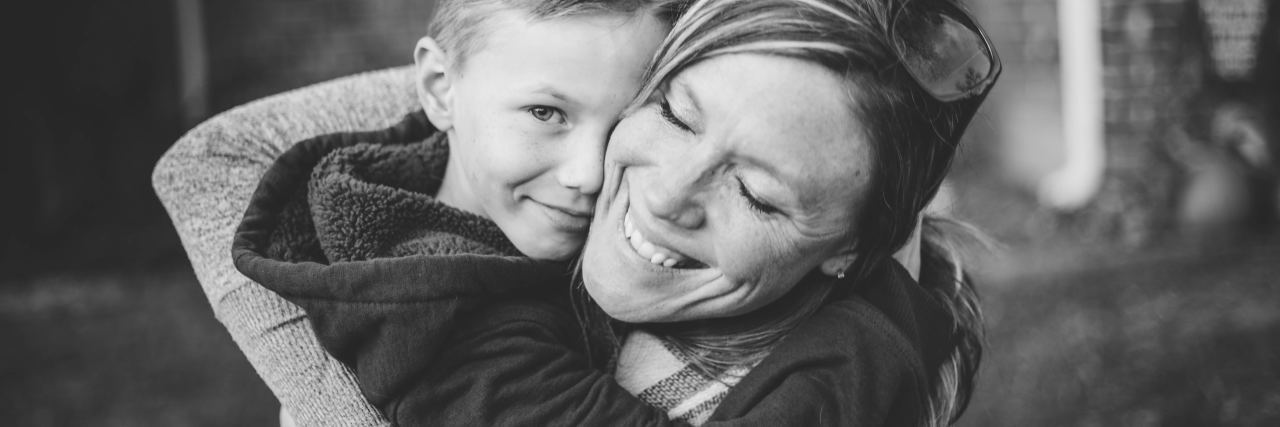Why ‘Adverse Childhood Experiences’ Can Affect Mental and Physical Health
Editor's Note
If you’ve experienced domestic violence or emotional abuse, the following post could be potentially triggering. You can contact The National Domestic Violence Hotline online by selecting “chat now” or calling 1-800-799-7233.
If you’ve experienced sexual abuse or assault, the following post could be potentially triggering. You can contact The National Sexual Assault Telephone Hotline at 1-800-656-4673.
You can also contact the Crisis Text Line by texting “START” to 741741.
As a pediatrician, some children present to me with complex problems or multiple problems that fail to resolve after the typical interventions. I recall a child with severe abdominal pain. He had tried numerous medicines and had scopes and studies galore. It had reached the point where he was being scheduled for exploratory surgery to try and see the cause of his pain. I lost track of his case when I rotated elsewhere for a month but upon my return, I learned that all of his symptoms resolved when his home environment changed. Sometimes, changing the environment makes all the difference. This has been recognized for years — I recall, in training, supervisors mentioning what would really help a certain child would be a “parent-ectomy.” More recently, another child was on a laundry list of medications and had a long list of active medical problems. Once her living situation stabilized, her health issues resolved. Problems that didn’t even seem to be stress-related or psychosomatic but seemed more physiological resolved.
Childhood stress is now described as adverse childhood experiences (ACEs). Another term is toxic stress. ACEs and toxic stress include parental substance abuse, homelessness, physical or sexual abuse or other negative experiences. (Visit here to calculate your own ACE number.) When a child is in an environment with toxic stress, their body is always in fight-or-flight mode, which takes a mental, physical and emotional toll. When you are gearing up to fight a bear, you need this adrenaline response on a temporary basis. But when the bear lives with you (for example, an abusive parent) and you are always ramped up, it is harmful. I have met children who faced abuses as infants and were removed early from a harmful environment, yet still have several behaviors linked to early stress. There are studies on the effects of toxic stress. The more toxic stress in a person’s childhood, the more likely they are to struggle with a host of ailments as they age. Some are easy to link to childhood ACEs, such as mental health issues, obesity or substance abuse, but even ailments that are viewed as more “physical” such as asthma are increased. It has been shown that stress in childhood changes a person’s body, mind and even their DNA in harmful ways. Click here for an infographic on ACEs and toxic stress from Harvard’s Center for the Developing Mind.
I have seen that, in the same family where children are facing similar stresses, that some children struggle with medical and psychological issues whereas siblings have resilience. One family had one sibling who would hop into my office smiling and laughing and friendly. In contrast, her sibling required significant mental health interventions to function even at a basic level. The author and lawyer J.D. Vance in “Hillbilly Elegy” details a childhood full of ACEs but became an Ivy League-trained lawyer. Clearly, some succumb to these stresses and others thrive despite them. What is behind resilience? Access to a supportive and caring adult makes a huge difference. This may be a teacher, coach, therapist or another relative. Programs that teach coping and mindfulness most likely help. Exercise helps. Sleeping well helps. Strengthening executive function and coping skills helps. Nadine Burke Harris, who spoke in a TED talk about ACEs and wrote a book called “The Deepest Well” on the same topic, has established a pediatric practice designed to screen for ACEs and implement and study interventions. Sometimes children do need a “parent-ectomy” and need to be removed from an abusive parent or a harmful environment. But today’s foster care system is straining. In some cases, I feel children’s lives do not significantly improve once in the system. At times, I wonder if one set of stressors are just replaced with a different set. Moving from one setting to another with no consistent caregiver is a toxic stress just like living with an impaired parent is a toxic stress. A black bear has been substituted with a brown bear. Perhaps one is larger than the other but you are still living with a bear.
ACEs are common. A great number of children face them. Institutions that serve children such as schools, daycares, foster care programs, and juvenile justice programs are at times using trauma-informed care which considers ACEs/toxic stress and works to promote healing and resilience. Without treatment of the harms caused by ACEs health problems, physical and mental, unhealthy behaviors such as overeating, substance abuse and other societal problems develop. Focusing on childhood may help ameliorate some of the challenges facing our communities.
Anecdotes and details changed and anonymized to provide privacy.
Photo by Connor Wilkins on Unsplash

